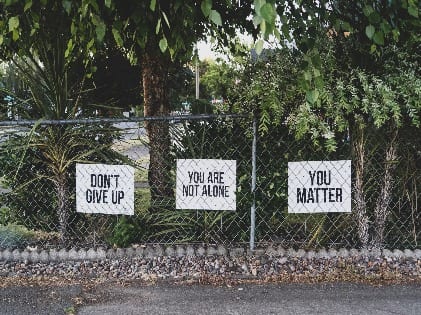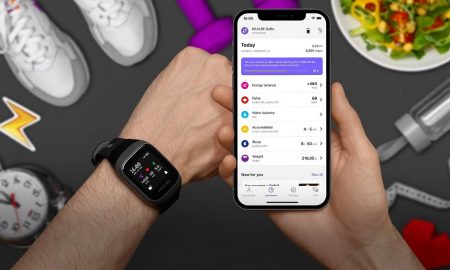
Do You Have ADHD? Here’s What Can Help You Cope!

 People who have ADHD or Attention deficit hyperactivity disorder can show up symptoms that can impact their daily lives. Fortunately, it isn’t something you can’t control or can’t manage. Here are a few expert-backed tips to reduce symptoms and feel better! Accept and move on!
People who have ADHD or Attention deficit hyperactivity disorder can show up symptoms that can impact their daily lives. Fortunately, it isn’t something you can’t control or can’t manage. Here are a few expert-backed tips to reduce symptoms and feel better! Accept and move on!
ADHD sounds something that you can’t manage, but it is just a way of your brain telling you is that it is too wired. The first part is certainly accepting the diagnosis and learn about the best strategies to cope.
Don’t Forget to Care for Yourself
People with ADHD stop enjoying the things they usually do, such as eating or even going to the bathroom. Try exercising every day as it can help you focus and even get you a good night’s sleep. When you take care of yourself, you will fall into a pattern and make your life more streamlined.
Use Pill Containers
 People who have ADHD often forget to take their medication or take it twice. So, you can try buying three weekly three pill containers and fill it up at the same time. This will help you get more organized, and you’ll also know when you are running out of medications.
People who have ADHD often forget to take their medication or take it twice. So, you can try buying three weekly three pill containers and fill it up at the same time. This will help you get more organized, and you’ll also know when you are running out of medications.
Control Your Actions
People who have ADHD may have a higher incidence of giving into addictions, so it is important to know your vulnerabilities and seek better and healthier stimulations to get you high such as dancing, exercise, laughter, and even puzzles.
Come Up With A Handy “Master List”
When in doubt, list it out the tasks which you are more likely to forget, the lists or tasks that may suddenly pop into your head. Writing down your thoughts so if you think of something, write it down so that it does not disappear. Keep notebooks around at critical junctures at your home, so you have everything at your fingertips. Once you collect all the important information, take it down into your notebook.
Keep a Planner
 Keep a planner with you so that you have a to-do schedule with you and plan accordingly. It is especially helpful to list down the non-specific activities, such as grocery shopping or getting a report for work. So, when you have a to-do list ready, you are much more likely to complete all the tasks listed in there.
Keep a planner with you so that you have a to-do schedule with you and plan accordingly. It is especially helpful to list down the non-specific activities, such as grocery shopping or getting a report for work. So, when you have a to-do list ready, you are much more likely to complete all the tasks listed in there.
Reduce Visual Clutter
Reducing clutter can help you manage the symptoms of ADHD better. So, when everything is scattered all over, and you are finding it difficult to know where to start? Then here it starts with one room, and then the next do it one at a time. Then put away everything neatly. This will help you not feel overwhelmed. Keep a timer and set it to say, for instance, fifteen minutes. Stop when the timer goes off, review your work and then, start again if you feel like it.
Seek Support
When you need it, go ahead and get it, the support I mean. So, if you are finding a particular task hard, go ahead and seek help from someone you know. If you hate to do certain chores, you can always hire a housekeeper.
Set Alarms
 If you tend to lose track of time, then set your alarm, keep your kitchen timer on or say your computer alarm. This will help you get a better sense of time.
If you tend to lose track of time, then set your alarm, keep your kitchen timer on or say your computer alarm. This will help you get a better sense of time.
Set A Clock in the Shower
Sometimes, you may find yourself lingering over a task for too long. You may even break into long reveries, or spend too much time in the shower and lose track of time. Keep clocks all around you so that you are in sync with the clock.
Saying No Matters
People with ADHD are generally people-pleasers and take on many things upon themselves, which they may find difficult to carry it out. For example, you may think you are not up to cooking for all the people turning up at your home for a weekend party, but you may still say yes, but instead of saying yes, immediately ask for more time to think it over. It’s okay to say no sometimes, and it is great for your peace of mind.
ADHD is a condition that may start in childhood and can continue until adulthood. It can create low- self-esteem in people and lead to troubled relationships too, in some cases. But treatment at the right time and a few tips shared here will help you cope better.
More in Mental Health
-
`
Is Swimming in Cold Water Good for You?
Swimming is a beloved activity that provides numerous physical and mental health benefits. Swimming can be a fantastic workout, whether you’re...
November 15, 2023 -
`
Unlocking the True Benefits of Detox Water
Detox water has taken the health and wellness world by storm, promising a wide range of benefits that go beyond ordinary...
November 7, 2023 -
`
How Tom Brady Shed 10 lbs After Retirement
One of the NFL’s most celebrated athletes, Tom Brady, has always been a topic of discussion. Brady never fails to surprise,...
November 1, 2023 -
`
AI’s Hidden Toll on Our Brains
Artificial Intelligence (AI) has permeated almost every facet of our lives, from virtual assistants and recommendation algorithms to autonomous vehicles and...
October 24, 2023 -
`
What to Drink During a Workout
When it comes to getting the most out of your workout, proper hydration is key. What you drink during exercise can...
October 17, 2023 -
`
Wearable Technology Applications in Healthcare
The world of healthcare is evolving at an unprecedented pace, and wearable technology is one of the driving forces behind this...
October 10, 2023 -
`
Initiating and Integrating Exercise in Daily Life
Incorporating exercise into our daily lives is essential for maintaining optimal health and well-being. However, initiating a fitness routine and seamlessly...
October 10, 2023 -
`
Jason Momoa’s Workout Routine for Iconic Aquaman Look
We all remember the moment: The big screen lights up, waves crash, and out emerges Jason Momoa as Aquaman, with his...
October 8, 2023 -
`
Crying: The Benefits on Mental Health
In a world that often champions stoicism and emotional restraint, shedding tears is sometimes dismissed as a sign of vulnerability. However,...
September 26, 2023















You must be logged in to post a comment Login